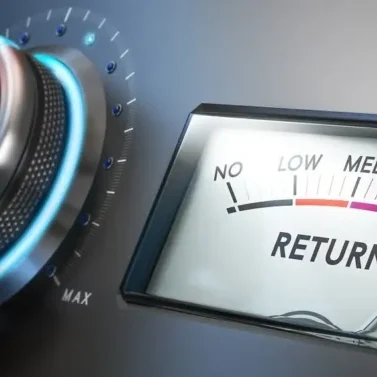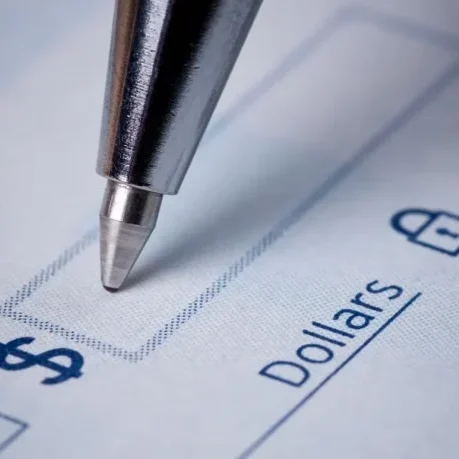How to Finance a Gas Station Business Acquisition
Summary: Gas stations are very common acquisition target, but they are also one of the toughest businesses to operate. The fuel market is competitive and profits can be volatile. Consequently, financing the acquisition of an existing gas station can be both difficult and complex. This article provides an overview of gas station finance. We cover the following subjects:
- Financing options
- What do lenders look for in a transaction?
- Potential hurdles and roadblocks
- Most common structure
1. How are gas station acquisitions financed?
The type of financing used for an acquisition varies and depends on the value of the gas station. In this article, we focus on transactions that are in the $500,000 to $5 million range. These transactions represent the majority of the small business market for gas stations.
a) Buyer's own assets
The easiest, but also the least common, way to pay for a gas station acquisition is for the buyer to pay the full price using their own funds. This method removes all the hurdles that come with external financing. Realistically, few buyers can afford to buy a business outright with their own money.
This does not mean that you will not use some of your money for the acquisition. You should still expect to use some of your funds in the transaction. Most lenders expect buyers to contribute around 10% of the acquisition value. This 10% is often referred to as an "equity injection" or down payment. The actual percentage varies by lender and transaction configuration.
Note: We are not aware of any lender that does not require an equity injection and offers 100% financing.
b) Seller financing
Sellers often offer financing to help buyers acquire their companies. Keep in mind that they do this because they have to – not because they want to. Sellers would prefer not to offer financing. They'd rather get the whole payment immediately.
Sellers offer financing because it serves as an incentive to attract buyers. Buyers, on the other hand, like seller financing because it usually offers competitive terms. It is also easier to get than conventional lender financing. Seller financing has one more very important benefit. It ties some of the seller's payments to the performance of the business for the term of the loan
c) Lender financing
Most small and midsized gas station acquisitions use some form of lender financing to cover the bulk of the cost. Buyers can use one of two options – conventional loans or Small Business Administration (SBA)-backed loans. Most small and midsize transactions in this market segment use an SBA-backed loan, however.
SBA-backed loans are easier to get than conventional loans. This is because the SBA provides incentives to lenders to make loans available to the public. These SBA incentives provide an important advantage over conventional bank financing. While the documentation requirements are similar between SBA and non-SBA loans, the SBA has easier qualification requirements. For more information, read "How to get a loan to buy a business."
2. What do lenders look for in a gas station acquisition?
Understanding your lender and where they come from is important for the success of the acquisition. It allows you to craft your offer accordingly, which increases your chances of accomplishing your objective.
In this section, we cover some details of what lenders look for in a gas station acquisition. Keep in mind that every lender is different and has its own requirements.
a) Can the gas station afford the loans?
Lenders want to finance gas stations that are in good financial shape. They want the business to be able to pay back the loans out of its own revenues. If the gas station is unable to pay for the financing out its revenues, it won't qualify for most types of financing. Lenders examine the company's financial statements to determine if there are enough resources to pay for financing, sustain the business, and pay the owner's salary.
b) Buyer's industry experience
Lenders prefer to work with buyers who have direct experience in the industry. Buyers should have direct experience managing a gas station similar to the one they are buying.
This requirement creates a dilemma for buyers who want to get into the industry but don't have the right experience. Fortunately, there is a way around this issue. Most lenders will work with you if you can hire a manager from the existing business and retain them for a couple of years.
c) Buyer's assets and equity injection
All business acquisition loans – SBA-backed or not – require that the buyer put some equity into the transaction. They don't make exceptions to this rule. Lenders expect buyers to inject about 10% of the business value into the transaction. The equity injection cannot be borrowed and cannot come from the seller. It must come from the buyer and their partners. For more information, read "What is the cost of buying a business?"
d) Buyer's credit score
Lenders look at your credit score, among many other items, as part of their due diligence. SBA-backed programs require a minimum credit score of 650 to 680. Non-SBA programs usually have higher requirements.
Some buyers are perplexed when they find out that their credit score plays a role in the transaction. After all, they want a business loan. Why does their personal score matter? Lenders ask for this information because they want to determine if the buyer will manage the company in a financially responsible way. Credit score can serve as a proxy indicator for this, albeit imperfectly.
e) Transaction size
Most lenders have a preferred transaction size and will not approve transactions that are outside that range. In our case, we prefer transactions that are between $700,000 and $5,000,000. We can consider larger transactions on a case-by-case basis.
f) Is a real estate provision included?
Gas stations are location-sensitive businesses. They need a good location to be successful. Lenders understand this issue and will seldom finance transactions that don't include a provision for the real estate as well. You must either have a lease that allows you to lease the space for the term of the loan or you must buy the real estate. Otherwise, the gas station could risk losing the location and, consequently, its revenues.
g) Convenience stores or other additional revenues sources
Selling fuel – gasoline or diesel – is a very low margin business that is subject to market fluctuations. Lenders consider gas stations that solely rely on fuel sales to be risky. They prefer gas stations that have additional revenue centers. Revenue centers can include convenience stores, car washes, or automotive maintenance shops.
h) Environmental issues
Environmental issues are one of the biggest risks in gas station acquisitions. Surface or subsurface contamination can occur when gasoline or petroleum products are released from storage tank systems, hydraulic lifts, car washes, or service bays. This kind of problem can be expensive to deal with. Note that the contamination may have occurred recently or in the past. Either way, it could become your problem.
Environmental concerns are one of the reasons that lenders scrutinize gas station transactions carefully. An environmental problem can easily derail an acquisition. Lenders review every environmental aspect of the gas station. However, they pay close attention to the fuel tanks, since they are often a source of problems. They generally consider these items during their due diligence:
- Gas station's age
- Location of tank
- Adjacent properties
- Tank materials (fiberglass vs. metal)
- Environmental test results
In the area of environmental risk, your interests and those of the lender are aligned. You probably don't want to buy a gas station with environmental problems. And your lender doesn't want to finance such a transaction.
i) Good financial records
Lenders don't feel comfortable financing acquisitions in which the gas station cannot justify its revenues and expenses. Neither should you, by the way. You should expect the seller to provide accurate financial statements before or during the due diligence process. Gas stations get a large portion of their revenues from cash sales. Some smaller operators are not as diligent as they should be recording these sales. This issue reflects on the financial statements and can derail a transaction.
j) Reasonable valuation
Lenders want to ensure that they finance only transactions that have a reasonable valuation. For obvious reasons, they don't want to finance an overvalued acquisition. As a buyer, neither do you.
During the initial phase of due diligence, most lenders rely on industry guidelines or their own internal knowledge to determine if the price appears reasonable. These can be considered "good enough"' to move the transaction along to other stages. You can find guidelines in publications such as the Business Reference Guide.
Once a transaction moves further along the financing process, most lenders will ask for a professional business valuation. They may also ask for collateral appraisals. These appraisals are done by professionals and are specific to the gas station you are buying. Each lender has its own process and requirements.
In general, valuation guidelines vary based on whether the gas station is full-service or self-service. They also vary based on whether the gas station has a convenience store, minimart, or other revenue center. Here are some sample guidelines from the Business Resource Guide. Gas stations that focus only in selling fuel usually sell for:
- 2.5 to 3 times SDE, plus inventory
- 2.5 to 3 times EBIT
- 2.5 to 3.5 times EBITDA (business only)
Stations with a mini-mart or a convenience store can usually sell for:
- 80% of annual sales with real estate (plus inventory)
- 20% to 25% sales plus inventory
- 3 to 5 times EBIT
- 2.5 to 3.75 times EBITDA (business only)
Keep in mind that these numbers are only examples. The only way to determine if you are paying the right price for a gas station is to get a business valuation done by a professional with experience in the gas station industry.
Definitions:
- SDE means Seller's Discretionary Earnings
- EBIT means Earnings Before Interest and Taxes
- EBITDA means Earnings Before Interest, Taxes, Depreciation, and Amortization
k. Active business owner
Some buyers have the objective of purchasing a gas stating and running it as an absentee owner. Note that most lenders are unwilling to support absentee-owner transactions. Lenders prefer to work with owners who want to work in the business full time.
l. Lender area of expertise
You could have the most profitable gas station acquisition transaction possible. However, if you present it to a lender that is not comfortable with gas station acquisitions, it will be declined. Few borrowers realize that lenders have areas of expertise that they focus on. Lenders have industries that they like and industries that they dislike. It's important that you work with a lender that is comfortable with gas station acquisitions. Otherwise, you could experience problems. Fortunately, there is a simple way to handle this issue. Ask your lender directly.
3. Problems that kill transactions
This section covers five of the most common problems that will kill a transaction. Keep these in mind as you prepare your transaction:
a) Insufficient buyer's equity injection
Lenders require that buyers invest some of their own funds in the acquisition. The requirement varies by transaction but it's usually around 10% of the acquisition value. Unfortunately, transactions in which buyers are unable to meet this requirement won't get financing. Learn more about sources for the equity injection.
Note: Unfortunately, lenders don't make exceptions to this policy.
b) Real estate provision issues
Transactions must include a real estate provision that meets the lender's requirements. Without the option to secure the location, the transaction will likely fall through. Keep in mind that some brands may have provisions that prevent other brands from operation in that space.
c) Environmental issues
Unless disclosed by the seller, any existing issues will come up during a Phase I Environmental Site Assessment or similar examination. This examination is done during the due diligence phase. Finding a serious environmental problem will likely kill the transaction's chances of success.
d) Minimal inside sales
Fuel sales are a low margin business that can have volatility. They depend on volume. This dependency makes fuel sales risky for some lenders. Consequently, most lenders prefer working on acquisitions that have diversified revenue sources. These can include revenues that come from an onsite convenience store, mini-mart, car wash, or auto maintenance shop.
e) Questionable financial statements
Many transaction fail due diligence because the gas station cannot justify its financial statements. This can be a problem for smaller stations that don't have good cash management and accounting practices. In many cases, there is little you can do about this.
4. How are most transactions structured?
The main objective for many entrepreneurs is to buy the largest gas station they can afford. Consequently, they use external financing and try to finance as much of the transaction as they can. This type of transaction is commonly referred to as a leveraged buyout (LBO). Leveraged buyouts have the advantage of enabling you to buy a large business while limiting your own investment. In the case of a small business LBO, you usually have to invest only 10% of the transaction with your own funds.
Leveraged buyouts are designed to maximize your returns if things go well. This is why investors like them. There is one important disadvantage, though. If things don't go well, an LBO can also wipe out your equity. This is something you must balance carefully. Most transactions to buy a gas station use a combination of these three sources:
a) Your own funds – 10% equity injection
Buyers contribute a minimum of 10% of the acquisition price of the transaction and inject it into the business. Some transactions may require a higher capital injection.
b) Seller financing
Seller financing is also quite common in small business acquisitions. The amount of the loan and the terms vary, though. Loans for 5% to 20% of the business value are common. However, there are some transactions in which the seller doesn't offer financing.
c) SBA-backed financing
Whatever amount is not financed by the seller or covered by the equity injection is financed using a lender. The most common product is an SBA-backed loan.
Looking to buy a gas station?
The first step to work with us is to submit this form. Once we review it, one of our associates will contact you to discuss the specific details of your acquisition.
Editor's note:
This information should not be considered legal or financial advice. Given the complexity of business acquisitions, this document is not guaranteed to be 100% accurate or cover every potential option. However, we make every effort to provide you with the best information. If you have comments, suggestions, or improvements, contact us via LinkedIn.






